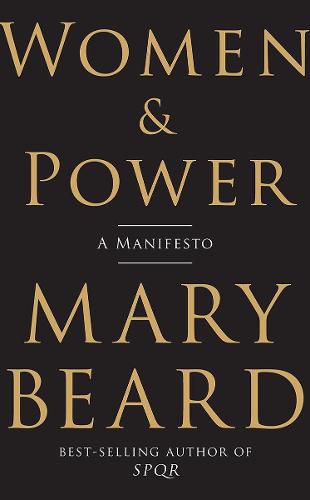Readings Newsletter
Become a Readings Member to make your shopping experience even easier.
Sign in or sign up for free!
You’re not far away from qualifying for FREE standard shipping within Australia
You’ve qualified for FREE standard shipping within Australia
The cart is loading…






Mary Beard’s feminist manifesto.
Why the popular resonance of ‘mansplaining’ (despite the intense dislike of the term felt by many men)? It hits home for us because it points straight to what it feels like not to be taken seriously: a bit like when I get lectured on Roman history on Twitter.
Britain’s best known classicist Mary Beard, is also a committed and vocal feminist. With wry wit she shows how history has treated powerful women. With examples ranging from Medusa and Athena to Theresa May and Elizabeth Warren, Beard explores the cultural underpinnings of misogyny, considering the public voice of women, how we look at women who exercise power, our cultural assumptions about women’s relationship with power, and how powerful women resist being packaged into a male template.
With personal reflections on her own experiences of sexism online and the gendered violence she has endured as a woman in the public eye, Mary asks: if women aren’t perceived to be fully within the structures of power, isn’t it power that we need to redefine?
$9.00 standard shipping within Australia
FREE standard shipping within Australia for orders over $100.00
Express & International shipping calculated at checkout
Stock availability can be subject to change without notice. We recommend calling the shop or contacting our online team to check availability of low stock items. Please see our Shopping Online page for more details.
Mary Beard’s feminist manifesto.
Why the popular resonance of ‘mansplaining’ (despite the intense dislike of the term felt by many men)? It hits home for us because it points straight to what it feels like not to be taken seriously: a bit like when I get lectured on Roman history on Twitter.
Britain’s best known classicist Mary Beard, is also a committed and vocal feminist. With wry wit she shows how history has treated powerful women. With examples ranging from Medusa and Athena to Theresa May and Elizabeth Warren, Beard explores the cultural underpinnings of misogyny, considering the public voice of women, how we look at women who exercise power, our cultural assumptions about women’s relationship with power, and how powerful women resist being packaged into a male template.
With personal reflections on her own experiences of sexism online and the gendered violence she has endured as a woman in the public eye, Mary asks: if women aren’t perceived to be fully within the structures of power, isn’t it power that we need to redefine?